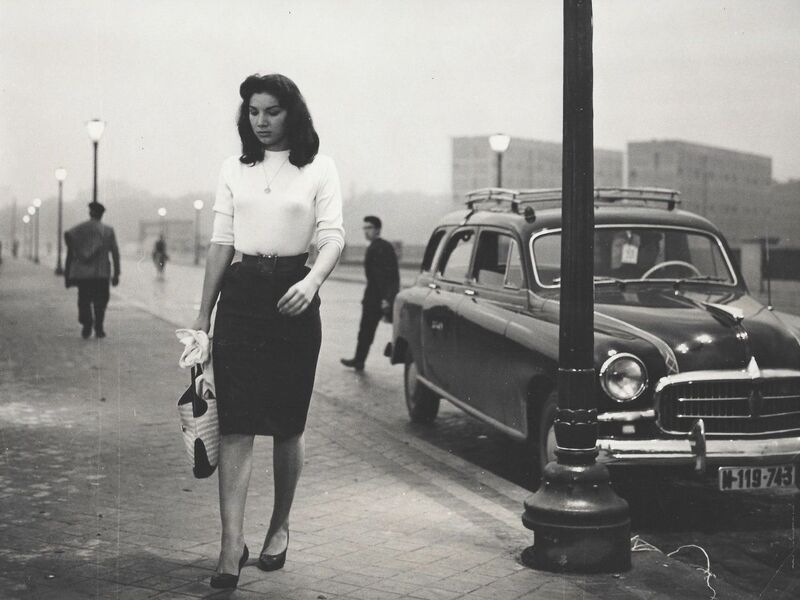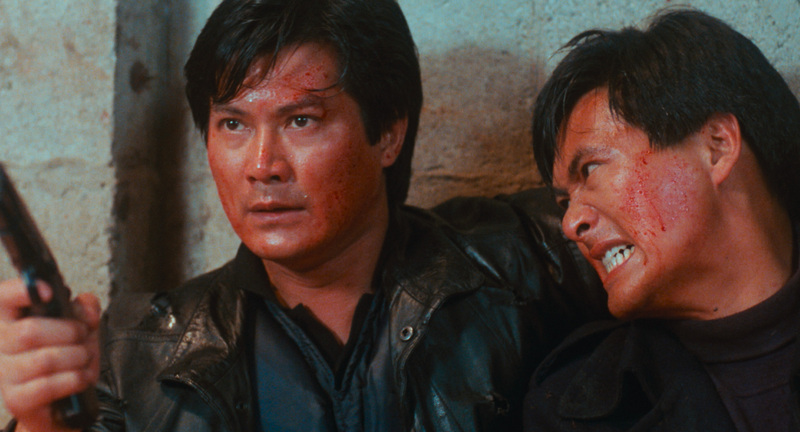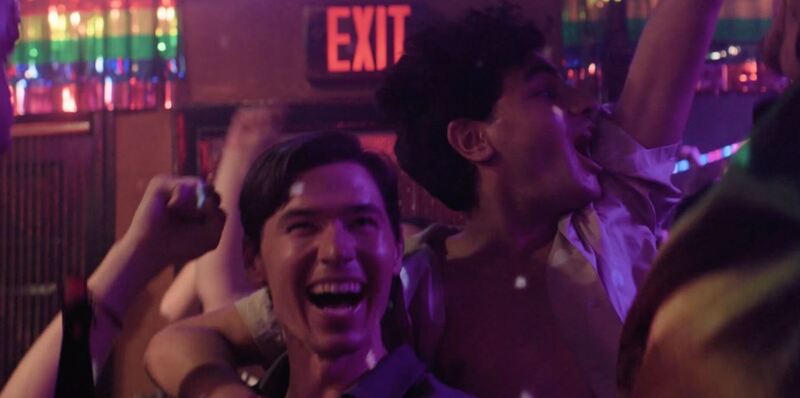
The Cost of Growing up Without Options
MOVIE REVIEW
Los Golfos (The Delinquents)
–
Genre: Drama
Year Released: 1959, Radiance Films Blu-ray 2025
Runtime: 1h 20m
Director(s): Carlos Saura
Writer(s): Carlos Saura, Mario Camus, Daniel Sueiro
Cast: Manuel Zarzo, Luis Marín, Óscar Cruz, Juanjo Losada, Ramón Rubio, Rafael Vargas, María Mayer, Antonio Jiménez Escribano
Where to Watch: available September 16, 2025, pre-order your copy here: hwww.radiancefilms.co.uk, www.mvdshop.com, or www.amazon.com
RAVING REVIEW: LOS GOLFOS doesn’t ask for nostalgia or redemption; it asks you to sit with a city that never noticed these kids until it needed to punish them. Carlos Saura’s first feature drops you in Madrid’s postwar margins, where a brotherhood of teens drifts between odd jobs, minor scores, and the kind of plans that feel big only because the wallet is empty. The script is deception, raising money so one of them can enter a bullfighting competition, the one “profession” that looks like a ladder out of poverty. The simplicity is the point. When survival is the day’s only plot, even a small goal becomes epic.
What makes the film resonate isn’t shock tactics or melodrama; it’s the way Saura treats deprivation as an everyday architecture. He favors faces over spectacle and routines over revelations. That choice turns the streets into an ecosystem: markets, garages, back rooms, and rail yards where cash slips hands and a small mistake can tilt an entire week. The camera’s patience is part observation, part indictment; the frame keeps including institutions that can’t see the boys unless there’s trouble, and adults who are either exhausted or transactional. It’s not a tirade, yet the politics are in every exchange. You feel the system through the texture of making do.
The gang’s bond is the film’s pulse. It isn’t honorable, but it is specific. Loyalty here looks like splitting beer money after a petty theft, or backing a friend’s half-chance at legitimacy even when no one says the word “legitimacy.” The bullfighting dream works as both a plot device and a social readout. It’s glamorous from a distance, brutal up close, and perfectly calibrated to say something about a country that constructs myths while everyday lives grind on. Saura doesn’t romanticize the arena; he uses it to expose what these boys have been trained to believe counts as escape.
Days blur, opportunities flare and fizzle, and the heist planning slides in with the same weight as a lunch stop. That looseness allows the group dynamic to breathe; it also invites the viewer to accept accumulation over event. The payoff isn’t a twist but a diagnosis. By the time the “big plan” arrives, the outcome feels less like a plot. Even without spelling out spoilers, it’s fair to say the film finds its ending in consequences, not in catharsis. That choice stays truer to the material than any triumph could.
Saura borrows the on-location grit and nonprofessional energy of Italian neorealism but refuses to paste in sermonizing. Instead, he uses repetition to map a social trap—small swindles, smaller wins, and a bureaucracy of punishment that’s swift where compassion is slow. A few scenes land with bluntness: bargaining at the market, the casual violence that erupts when pride collides with hunger, the easy way adults dismiss a kid’s future as someone else’s problem.
The boys aren’t interchangeable; each carries a slightly different calculus—quick temper, restless ambition, passivity masquerading as charm. The would-be bullfighter isn’t framed as a golden child; he’s another kid who sold a story about talent rescuing him from class. That point sharpens the film’s cruelty without making it hopelessly bleak. There are flashes of joy—jokes, flirtations, a shared cigarette—but they hit like weather passing, not a forecast changing. In this world, tenderness exists; it just doesn’t pay.
Two critiques prevent this from being a masterpiece of the highest tier. First, the structure’s looseness sometimes drifts into redundancy. A handful of middle passages underline the same point without adding new pressure. Tightening those minutes wouldn’t blunt the film’s patience; it would deepen the dramatic curve. Second, a couple of supporting characters, some of the adults, are thinly sketched and almost archetypal. The choice may be intentional—institutions over individuals—but a touch more contour there would have contrasted the boys’ specificity and sharpened the social cross-section.
Those caveats aside, the restoration-era presentation is a gift. The new transfer’s clarity doesn’t “prettify” poverty; it clarifies faces, textures, and the city’s hard edges so the film’s observational ethic reads cleanly. Archival context around censorship is especially valuable because it reframes the movie’s restraint as a strategy, not timidity. The extras that discuss cut material and script notes provide contemporary audiences with the missing negative space: what the film couldn’t say outright and how it learned to convey it anyway. That historical aspect transforms a debut into a key document of a director learning to navigate power while still telling the truth.
As a time capsule, LOS GOLFOS stands with other youth-in-peril landmarks, but its voice is its own. It’s less interested in the fireworks of delinquency than in the math of it—how debts mount, how the day’s haul disappears into dinner and rent, how a single fine erases a week. It’s also frank about masculinity as performance: bravado that cracks under fear, camaraderie that doubles as pressure, and a dream—bullfighting—packages violence as prestige. None of this plays as a thesis statement; it arrives in the way a glance lasts half a second longer than it should, or a joke lands flat because everyone knows the punchline is the landlord. The power comes from accumulation, not event; the argument comes from seeing, not stating. By the time the credits roll, the title feels less like a label for the boys and more like a verdict on a city that left them to improvise adulthood with nothing but risk and each other.
Please visit https://linktr.ee/overlyhonestr for more reviews.
You can follow me on Letterboxd, Instagram, Twitter, and YouTube. My social media accounts can also be found on most platforms by searching for 'Overly Honest Reviews'.
I’m always happy to hear from my readers; please don't hesitate to say hello or send me any questions about movies.
[photo courtesy of RADIANCE FILMS, MVD ENTERTAINMENT]
DISCLAIMER:
At Overly Honest Movie Reviews, we value honesty and transparency. Occasionally, we receive complimentary items for review, including DVDs, Blu-rays, CDs, Vinyl Records, Books, and more. We assure you that these arrangements do not influence our reviews, as we are committed to providing unbiased and sincere evaluations. We aim to help you make informed entertainment choices regardless of our relationship with distributors or producers.
Amazon Affiliate Links:
Additionally, this site contains Amazon affiliate links. If you purchase through these links, we may receive a commission. This affiliate arrangement does not affect our commitment to honest reviews and helps support our site. We appreciate your trust and support in navigating these links.



Average Rating